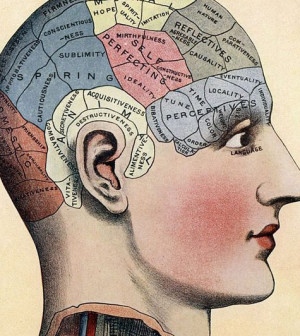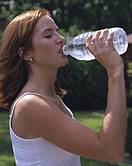- Double Mastectomy May Offer No Survival Benefit to Women With Breast Cancer
- Toxic Lead Found in Cinnamon Product, FDA Says
- Certain Abbott Blood Sugar Monitors May Give Incorrect Readings
- Athletes Can Expect High Ozone, Pollen Counts for Paris Olympics
- Fake Oxycontin Pills Widespread and Potentially Deadly: Report
- Shingles Vaccine Could Lower Dementia Risk
- Your Odds for Accidental Gun Death Rise Greatly in Certain States
- Kids From Poorer Families Less Likely to Survive Cancer
- Tough Workouts Won’t Trigger Cardiac Arrest in Folks With Long QT Syndrome
- At-Home Colon Cancer Test Can Save Lives
Scientists Spot Brain’s ‘Off’ Switch for Water Intake


Thirst is crucial to staying healthy and hydrated, but how does the brain know when to put a stop to water intake? A new study suggests that scientists have solved that question.
There are real implications for medicine, since drinking too much water can dilute salt concentrations in the blood, resulting in potentially fatal brain swelling. The condition occurs in some patients with schizophrenia and in some marathon runners, the team of Australian researchers explained.
In their study, the researchers used MRI to scan volunteers’ brains at two points — when they were thirsty, and then after they drank as much water as they could.
“Different areas of the brain involved in emotional decision-making were activated when people drank water after becoming thirsty and [then] when study participants followed instructions to keep drinking when no longer thirsty,” study author Derek Denton, a professor at the University of Melbourne, said in a university news release.
“The brain regions determining the signals to stop drinking have not previously been recognized in this context,” he noted. The study, “identifies an important component in regulation and this ‘stop mechanism’ may prevent complications from excessive water intake.”
The findings could be applied to other areas of human gratification, such as eating, salt intake and sexual behavior, Denton theorized.
More information
The U.S. Centers for Disease Control and Prevention has more about water consumption.
Source: HealthDay
Copyright © 2024 HealthDay. All rights reserved.










